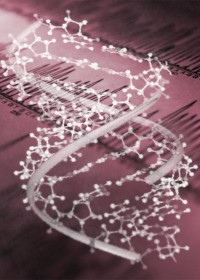
Yoga may help recovering breast cancer patients fight the fatigue and inflammation that follows surgery, chemotherapy, and radiation. Exercise is known to help alleviate post-treatment symptoms, but many cancer patients are simply too exhausted to participate in regular exercise. For these cancer patients, one option is low-impact hatha yoga which boosts strength and flexibility while enhancing mind-body awareness without taxing the body.
In a recently published study designed to test yoga’s benefits for cancer patients, Ohio State University researchers tracked 200 breast cancer survivors. According to a report on Boston.com, cancer patients who participated in 90-minute restorative yoga classes twice a week for 12 weeks following cancer treatment reported a nearly 50% reduction in fatigue. Blood tests of yoga participants also revealed a 15% reduction in three proteins that are markers for inflammation.
Interestingly, the study found that yoga continued to benefit cancer survivors even if they stopped participating in yoga after the initial test period. After six months, fatigue and inflammation continued to decrease with those who continued practicing yoga realizing the greatest benefits.
Yoga participants also benefited from improved sleep which study leader Jan Kiecolt-Glaser, a professor of psychiatry and psychology at OSU, linked to the decrease in inflammation. “Part of the idea with yoga and related kinds of practices is it may make people less stress-responsive overall. If you can turn down the thermostat in terms of reacting to stressors, you may be able to lower inflammation,” Kiecolt-Glaser told the Columbus Dispatch. Inflammation has been linked to a higher risk of cancer recurrence and spread.
Issels Integrative Oncology embraces a comprehensive strategy of non-toxic cancer treatment that encompasses body, mind and spirit to restore the body’s own immune system. Visit our website to find out more about our integrative immunotherapy cancer treatments.





